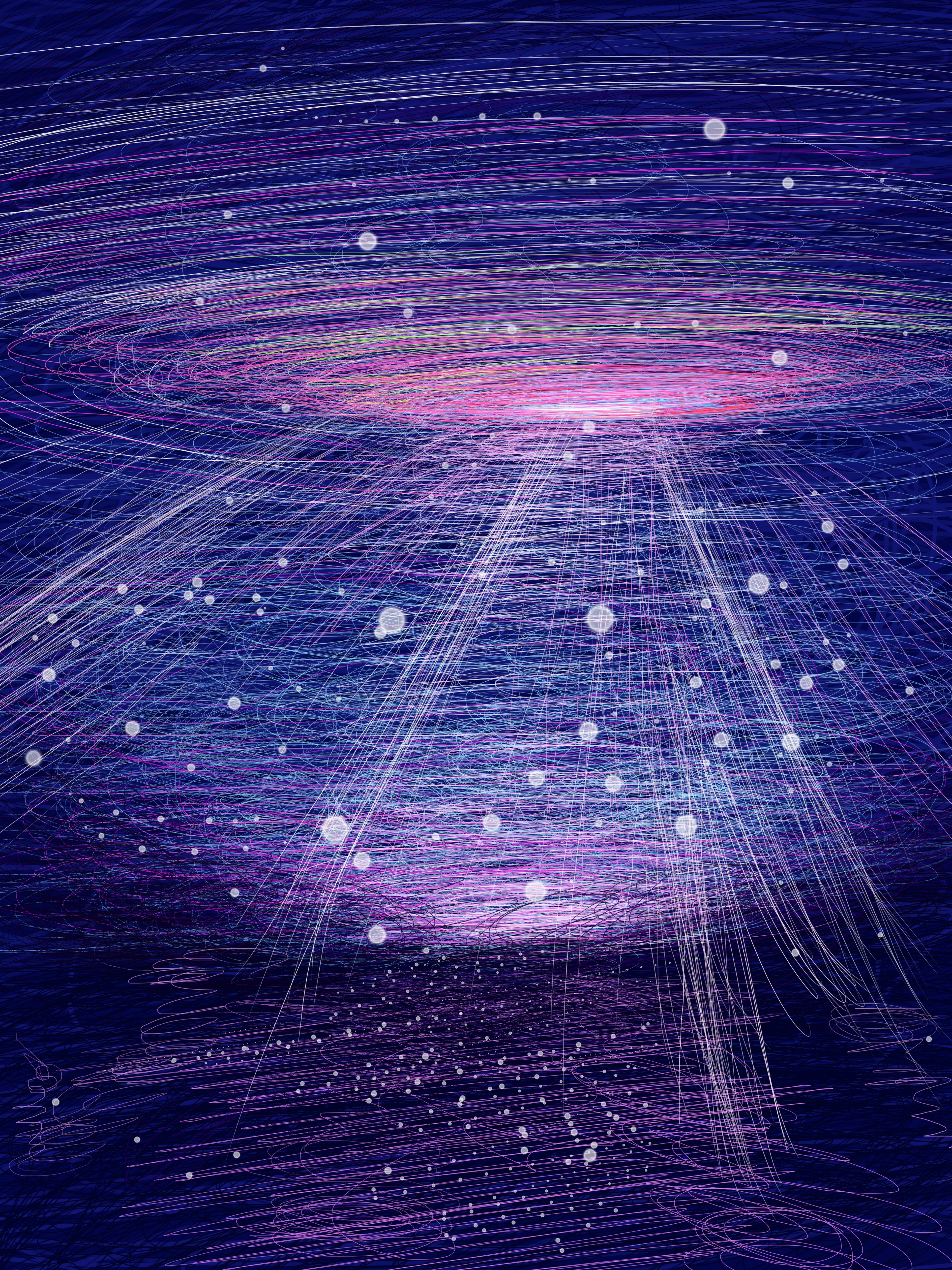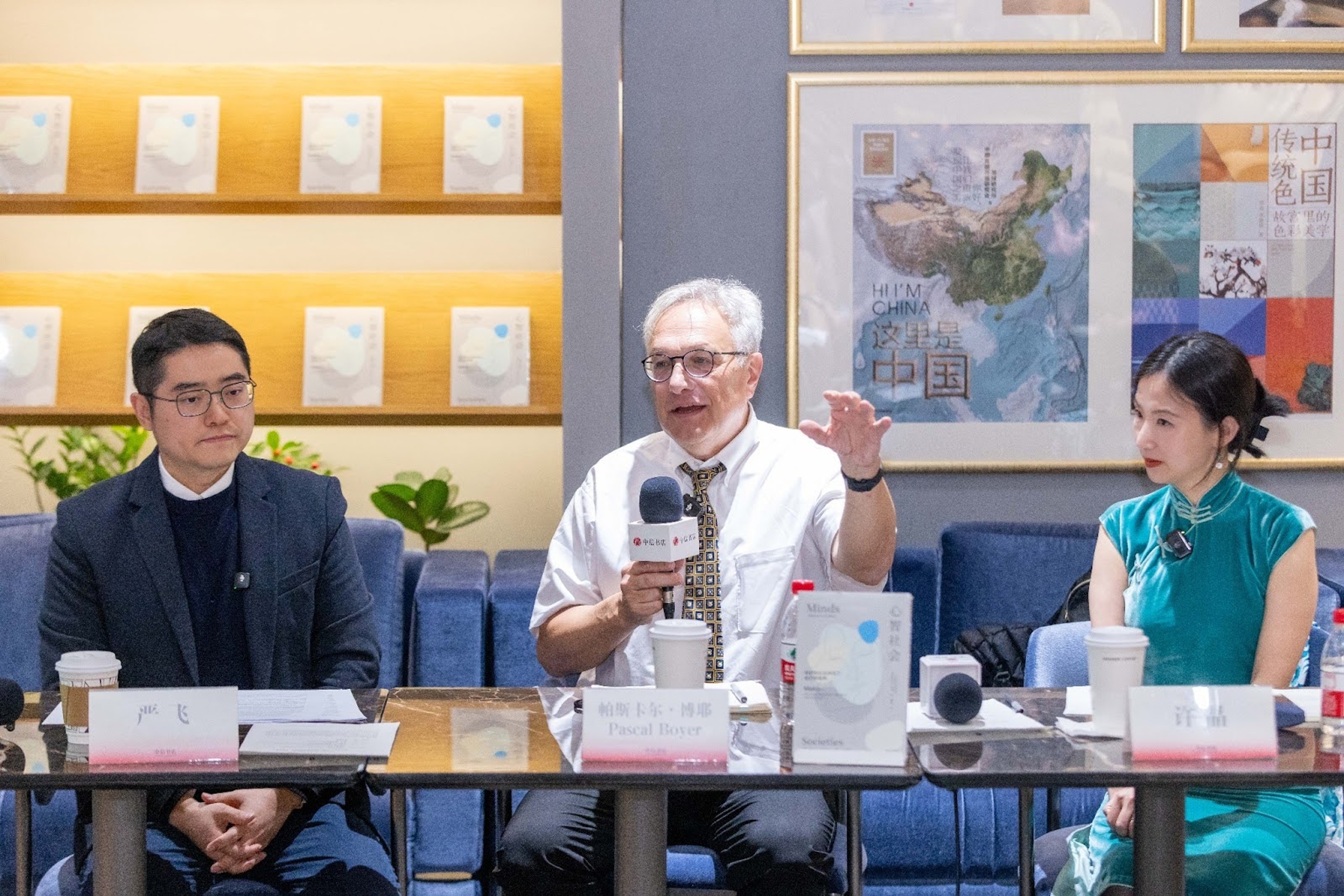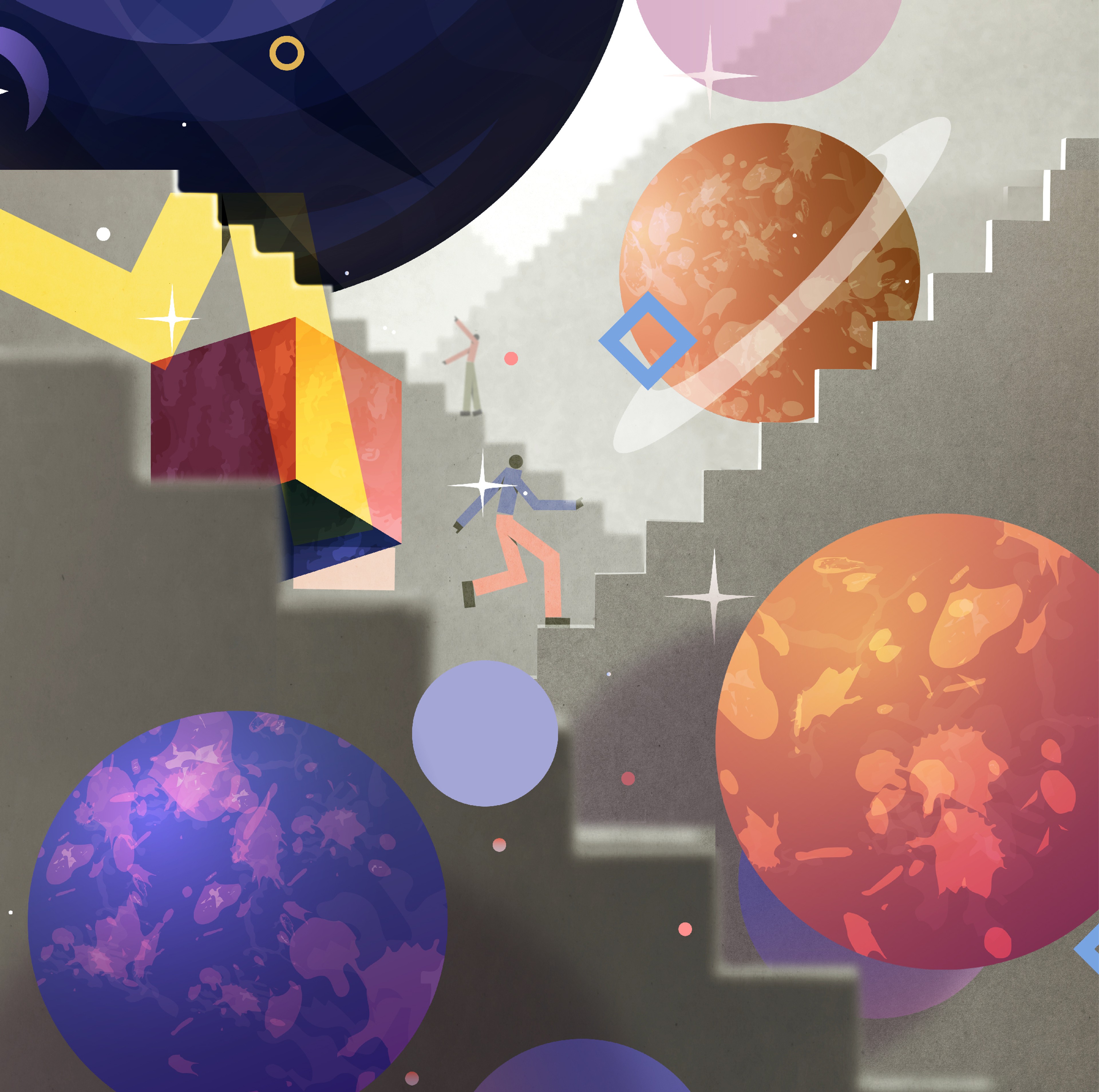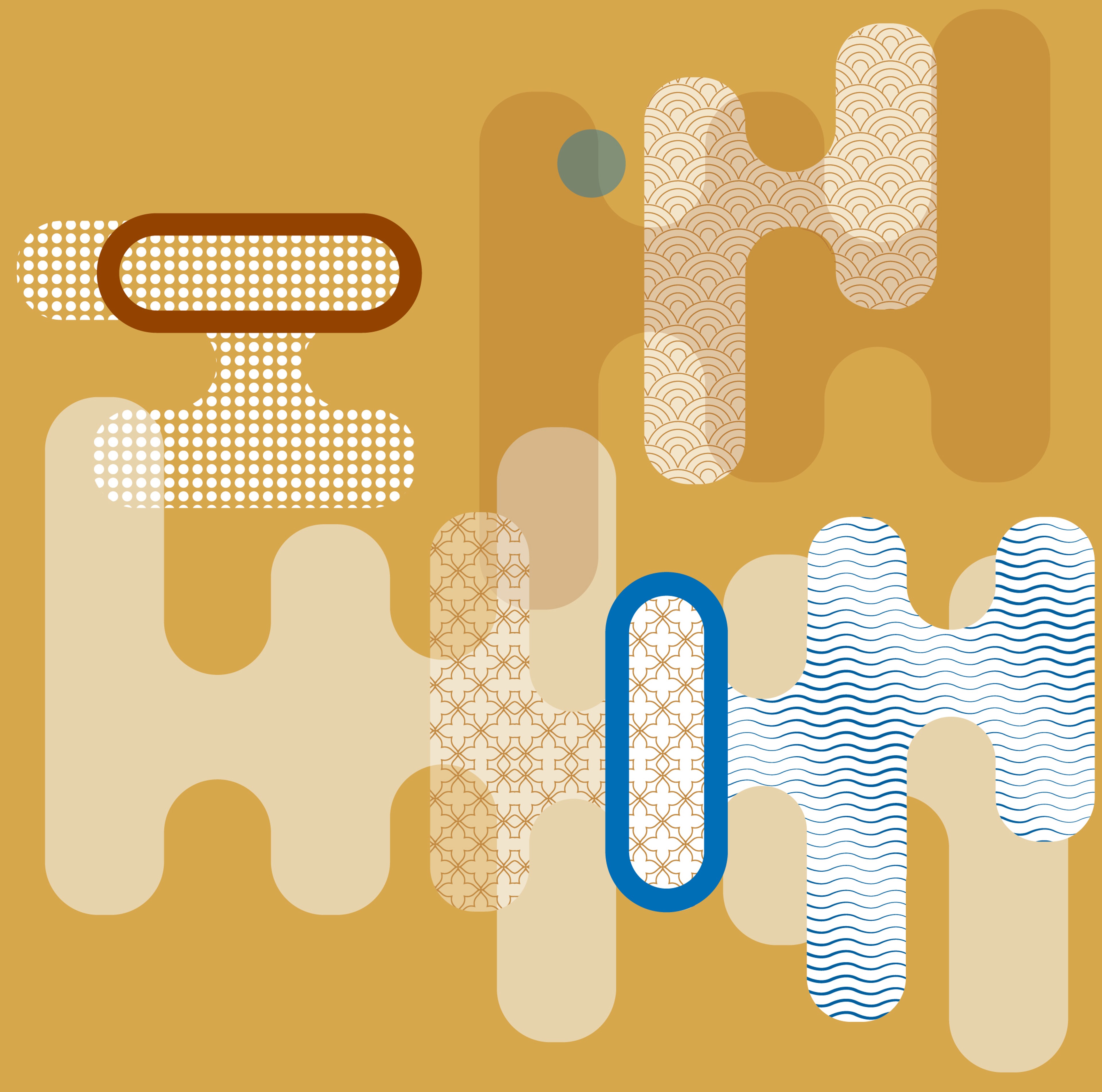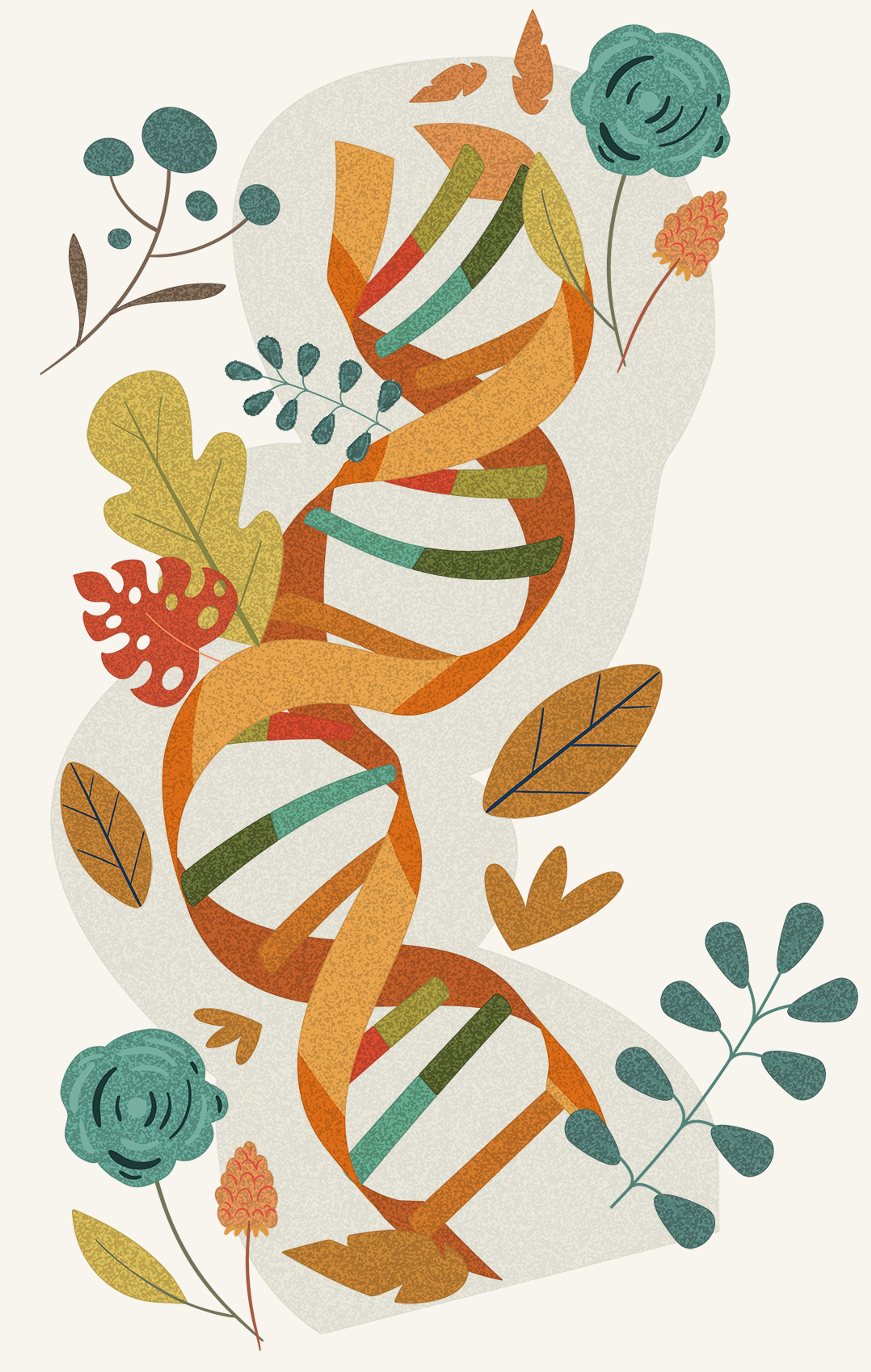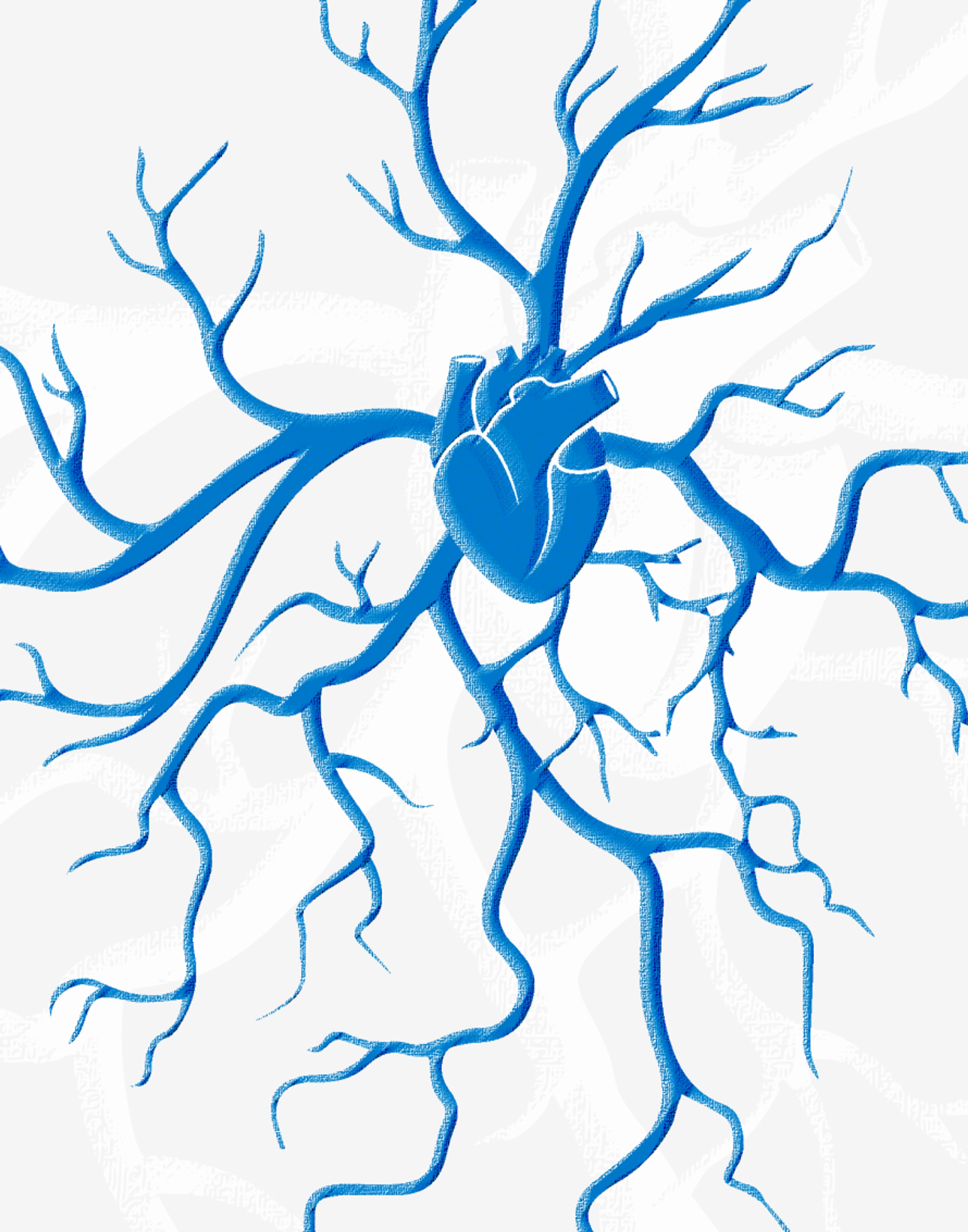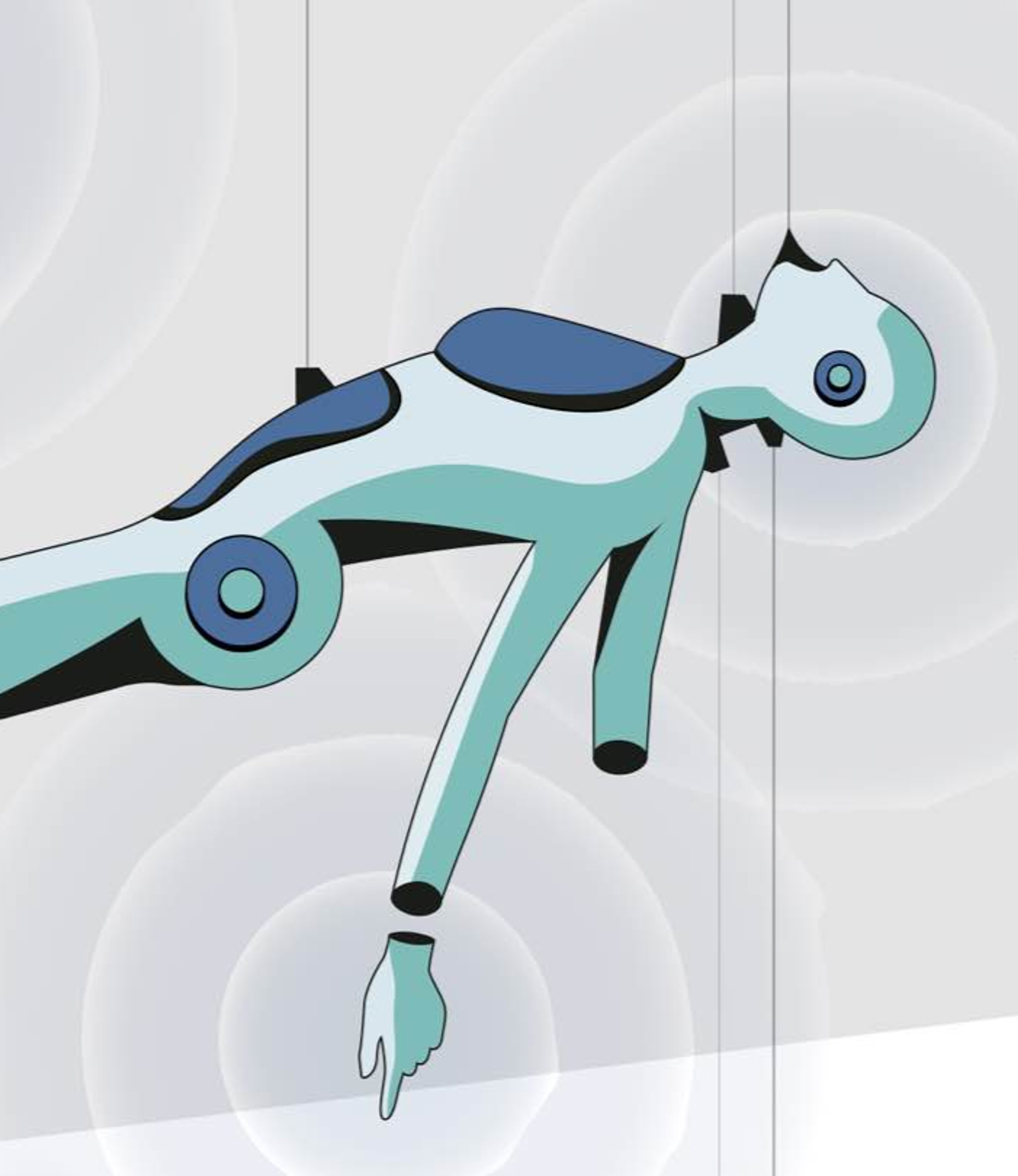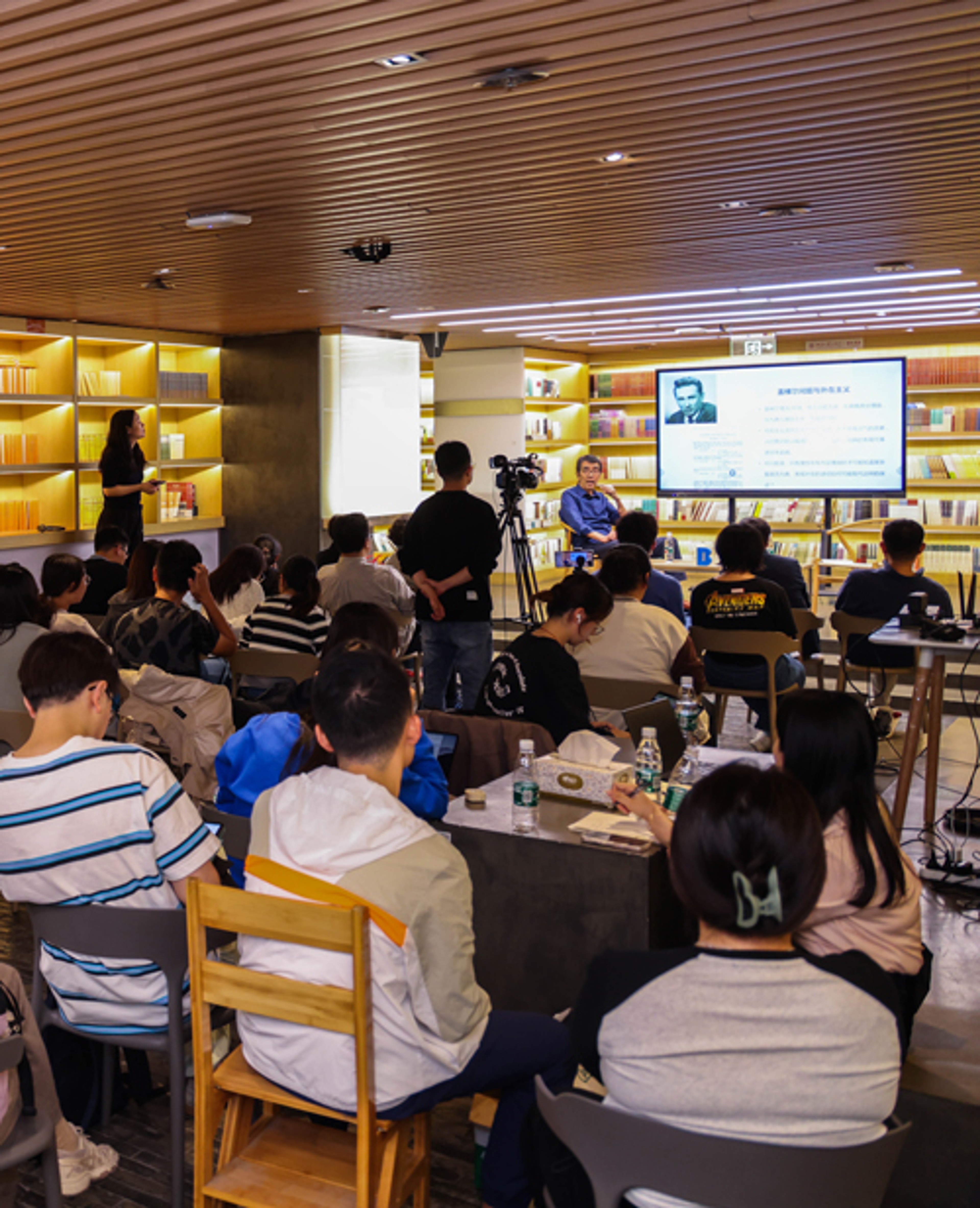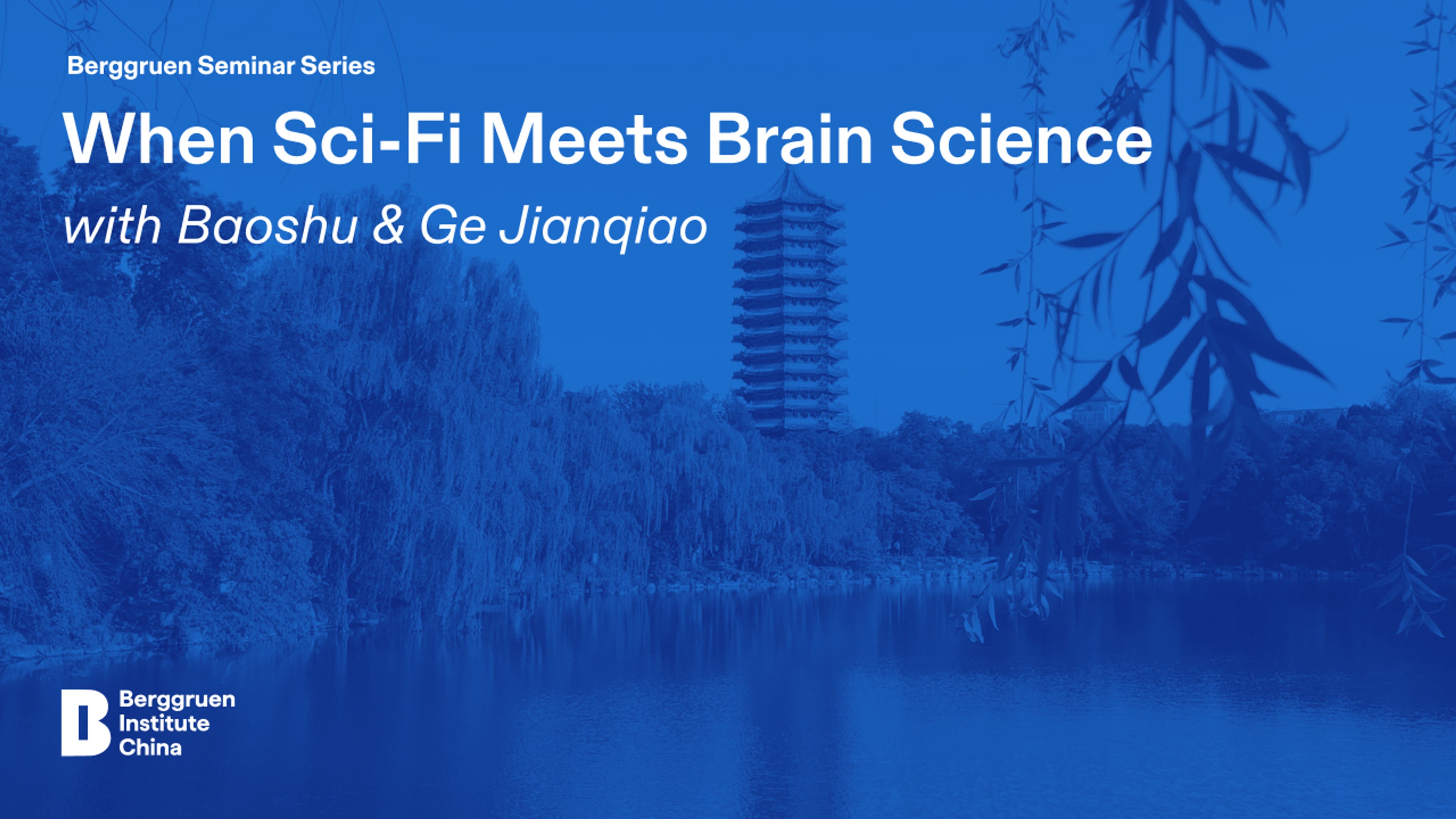When Sci-Fi Meets Brain Science: Baoshu Discusses New Book with Ge Jianqiao
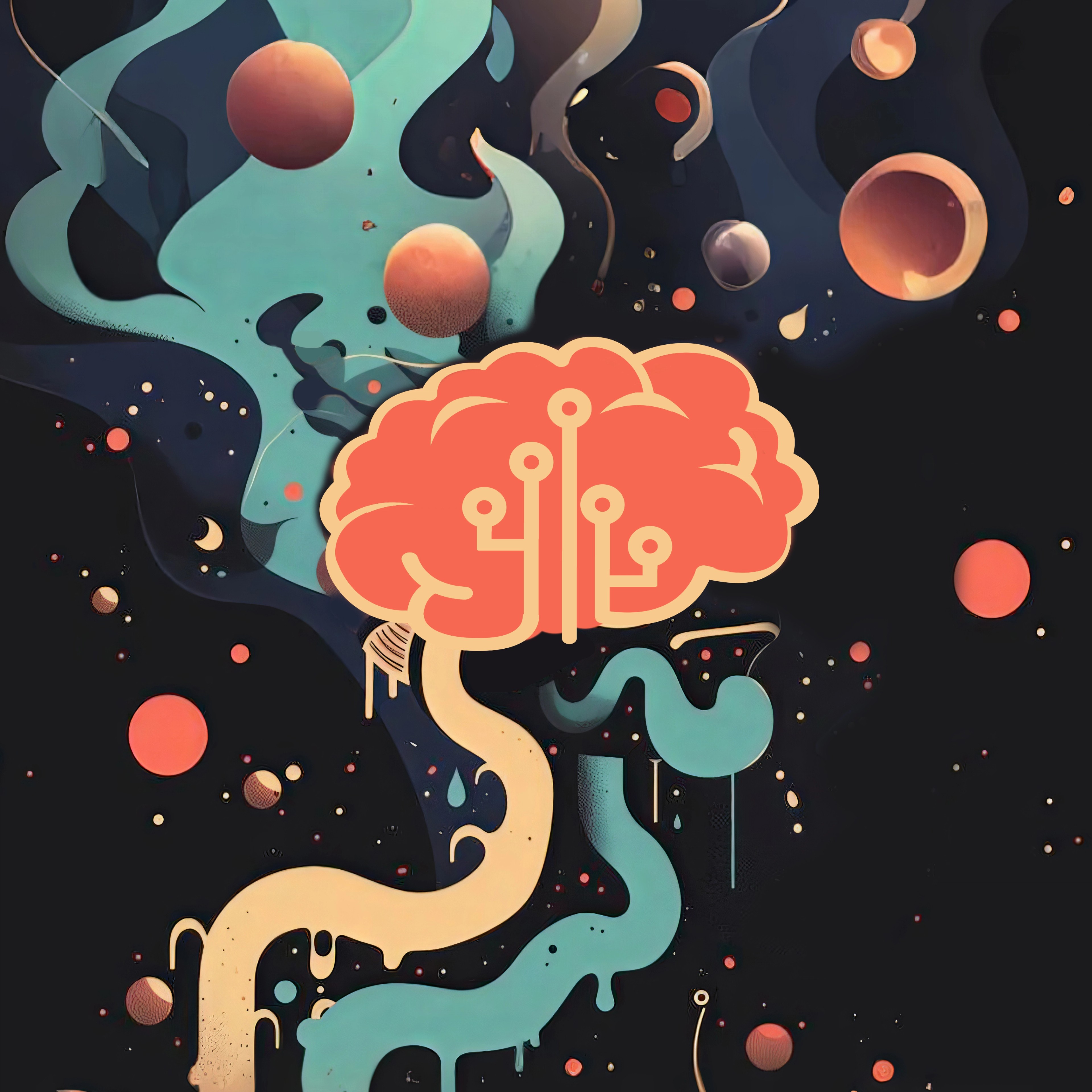
- Date: September 12, 2025
- Location: CITIC Bookstore, Sanlitun, Chaoyang District, Beijing
Event Summary
On September 12, 2025, the 39th Berggruen Seminar titled “When Sci-Fi Meets Brain Science: Baoshu Discusses New Book with Ge Jianqiao” was held at the CITIC Bookstore in Sanlitun, Beijing. The event’s speakers featured Baoshu, a science fiction author, and Ge Jianqiao, lecturer at Peking University’s Academy for Advanced Interdisciplinary Studies.
The discussion centered around Baoshu’s recently published science fiction novel You Are Already in the Future(你已生活在未来). This book collects many stories written by Baoshu during his time as a Berggruen Fellow in 2022-2023. In this book, Baoshu explores drastic changes to personal lives in an age of technological acceleration and its impact on familial and relationship affairs.
Through their insights into science fiction creation and scientific research, both speakers reflected upon the development of scientific technology, literature, and the interplay between reality and fiction. To begin with, Baoshu briefly introduced AI creation and the new science fiction movement on the eve of singularity. Later, Ge analyzed the possibilities of technological immortality from the perspective of a neuroscientist, as well as how science fiction has influenced scientific research as a science fiction enthusiast. Thereafter, both speakers engaged with the audience to discuss the potential of AI in science fiction creation and where the ethical boundaries of technology lies.
Baoshu: Science fiction creation on the eve of singularity
The essence of science fiction is to make the impossible possible, as Baoshu emphasizes. A medium navigating between the spaces of technology and reality, science fiction helps us discover new dimensions to our lives, reimagine possibilities and translate them into concrete change.
Baoshu situates humanity on the verge of singularity. With the technological breakthroughs, we are undergoing revolutionary levels of change beyond human understanding and control. Amidst the unprecedented technological changes, the stability of reality has disintegrated and we live in multiple realities. Since the speed, reach and breadth of technological development varies widely, our daily lives are shaped by multiple realities even in the same world. This is evident in the rural-urban technological lag, infrastructure gap across nations, and the glaring difference between cutting-edge technology used in labs and our day-to-day lives. Against this backdrop, science fiction becomes ever more significant in bringing together these multiple realities.
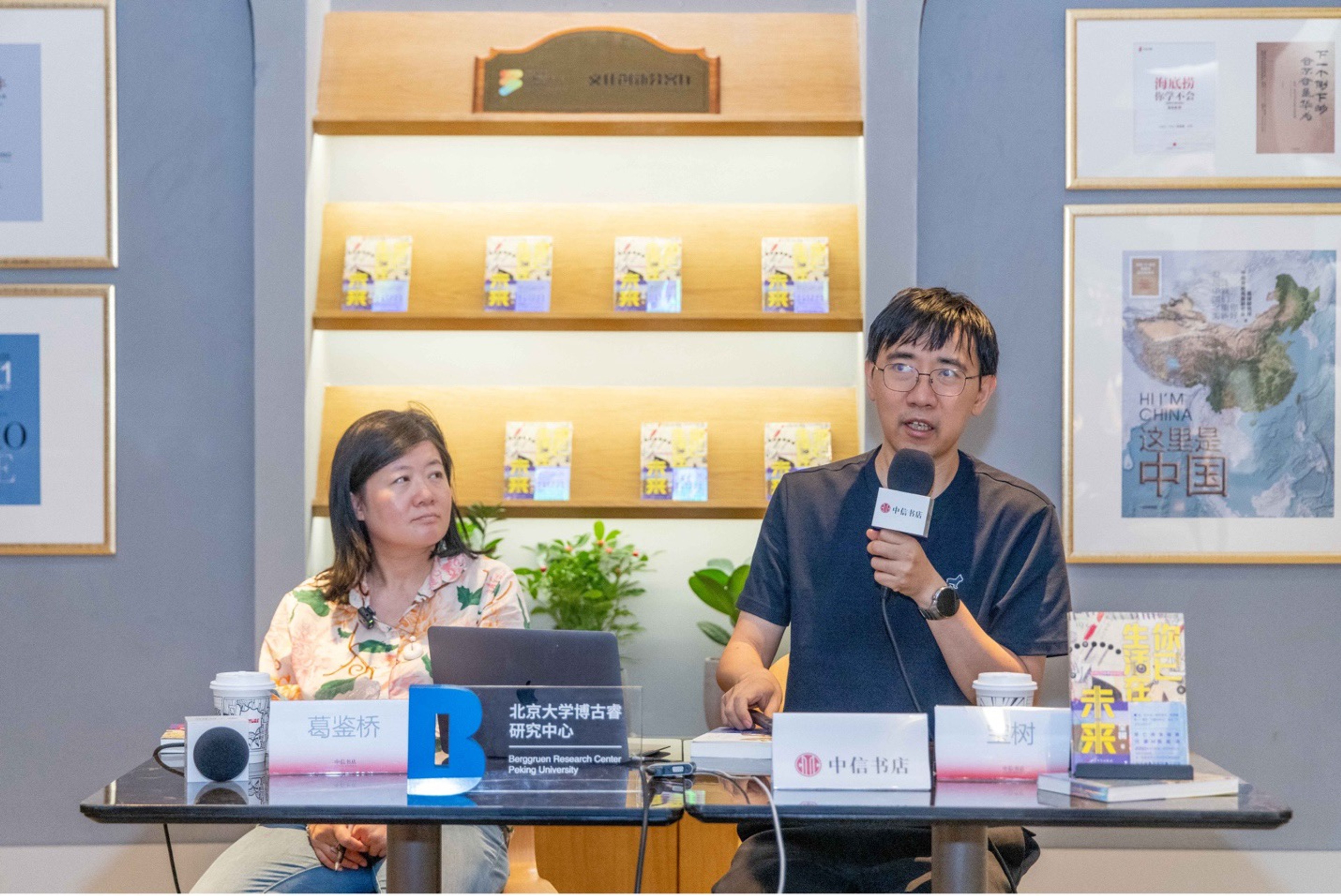
In turn, the development of artificial intelligence is also changing the ways science fiction authors create their work. Baoshu points out that today’s science fiction authors can no longer write like Asimov did. This is because the once unimaginable science fiction has already become part of our reality. For instance, gene editing is already widely used in practice for treating illnesses. Emerging science fiction authors do not pay as much attention anymore to topics such as time travel, alien civilizations and robots. As the old models of science fiction creation are being discarded, new methods are formed.
New tools and methods concerning artificial intelligence also bring controversies in science fiction composition. Baoshu observes that some authors abuse software to piece together various texts and plagiarize original works. Furthermore, for purposes of commercialization, using big data algorithms to produce customized consumption contents pose new threats to authors’ traditional role. Baoshu highlights that the present stage of artificial intelligence development cannot replace humans in writing science fiction. Science fiction written by AI today overuses scientific jargon while full of loopholes and lacks coherent, logical structure. Yet, we must admit that the human-centered method of writing is being displaced. In this transitional phase towards a post-human writing process, writers must learn how to adapt to and work with technology.
Lastly, despite the uncertainties ahead of us, Baoshu calls for facing the unknown by viewing the overall advancement of intelligence from a broader angle. We should embrace the opportunities and challenges that come before the arrival of the singularity.
Ge Jianqiao: Neuroscience research and inspiration from science fiction
As a neuroscience researcher, Ge Jianqiao first introduced Peking University’s neuroscience research platform, along with non-invasive brain imaging technologies for studying the structure and function of the human brain. By using specialized instruments such as magnetic resonance imaging (MRI) and magnetoencephalography (MEG) to scan the human brain, researchers can analyze brain images to observe the activity of human intelligence during thought processes.
These research methodologies not only help people understand how the brain works from a physiological perspective but also further exploration of philosophical questions about the brain and intelligence. These questions include the neural mechanisms related to self-consciousness (“Who are we? Where do we come from? Where are we going?”) and the neural foundations of human emotions, including the emergence, development and dissolution of love and hate.
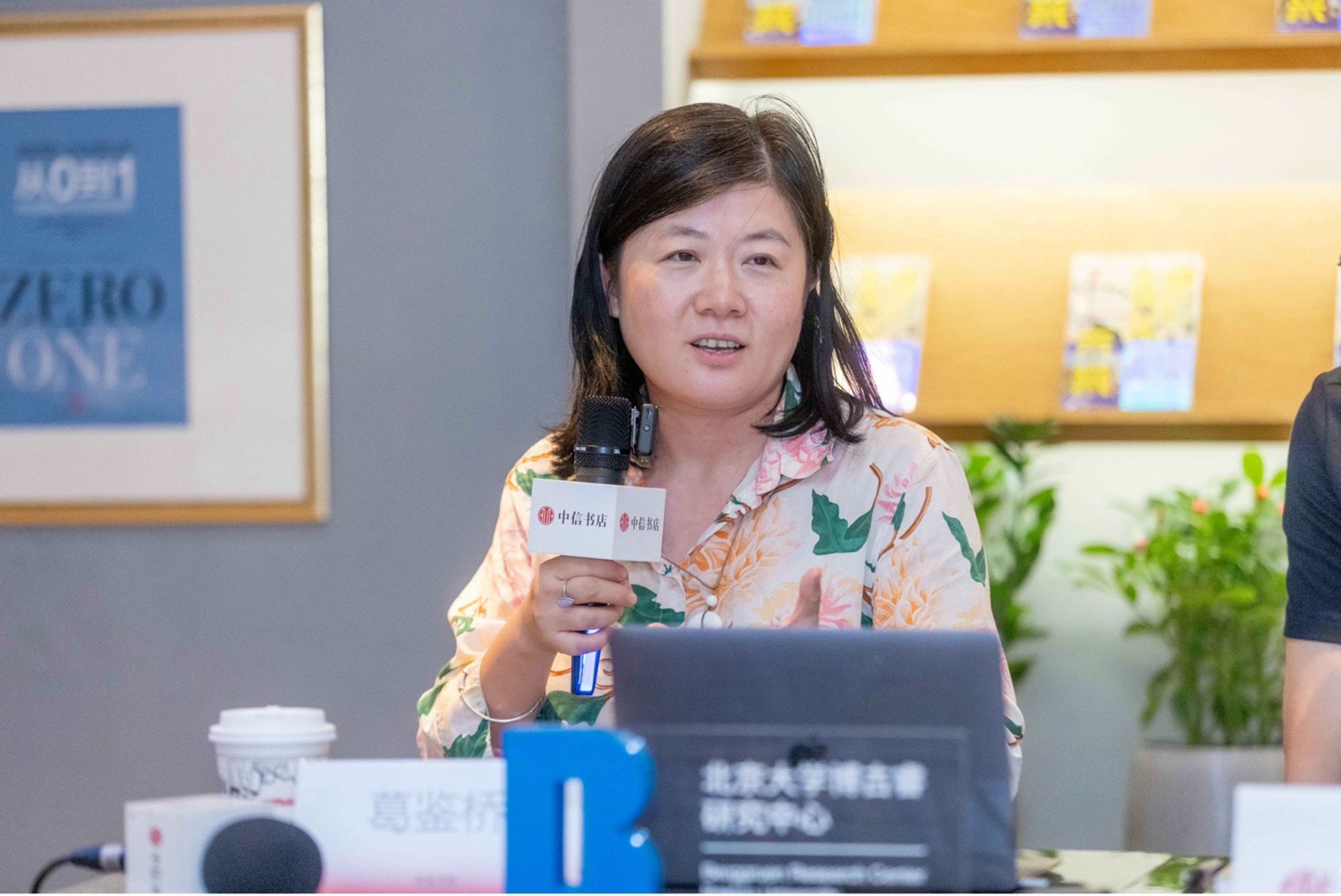
Perhaps the development of artificial intelligence presents a new opportunity for the human brain to evolve, Ge argues. Ge highlights that the human brain is an ancient system. Despite evolving for millions of years, AI still stands as an unprecedented challenge to intelligence.
Technology has not only transformed the way we live but also has cognitive consequences by reshaping human intelligence. For example, a study on information technology and human memory patterns shows that the use of search engines has altered the way the brain remembers. We no longer remember specific content but remember where the information is stored. The Internet has thus become humanity’s collective external memory. As long as we can locate the required information online, we can store and exchange memories.
Furthermore, the development of brain intelligence may also expand the limits of human survival. Neurons in the human cerebral cortex do not regenerate themselves but instead function for a lifetime. If one seeks a stable substance to generate the sense of self, cortical neurons might be the most reliable. Currently, both neuroscience research and philosophy are exploring the possibility of “immortality in the brain.” With suitable external intelligent supports, such as brain-computer interfaces or neuron transplants that outlive the natural human lifespan, one may be able to achieve an individual’s “objective immortality” in the perception of others. The feasibility of “subjective immortality,” or continuity of self-awareness, still requires further exploration.
Ge contends that when facing such opportunities and challenges, we need to actively adapt to change, and science fiction can help people expand their imagination and understanding of the unknown. Science fiction acts as a thought experiment for scientific research. It allows for the exploration of the potential social and cultural impact of scientific developments. In this way, science is “rehearsed” in science fiction. Ge suggests that researchers can learn from science fiction writers’ “comprehensive simulation” thinking. While developing new technologies, they can also envision the multiple effects these technologies might have on reality, thereby readjusting the direction of technological progress.
In addition, Ge emphasizes that science fiction possesses a unique ability that current brain intelligence technologies do not: the power to ingrain thought into the human soul. Stories are a medium for thought. It has the power to transmit belief, knowledge, feelings and transform collective consciousness through the individual. This is an ability science still has much to explore and learn from.
Audience Interaction
With regards to the relationship between science and science fiction, Baoshu suggests that, although from different disciplines, they are in fact interconnected and inspiring each other. Many scientists are lovers or creators of science fiction themselves. As a creator himself, Baoshu focuses on the internal challenges science fiction faces today. The excitement and richness of modern life today may have surpassed the imagination of science fiction.
Science fiction may also lag behind technological development. The story “My College Entrance Exam” (我的高考) collected in You Are Already in the Future was written around 2013 and set in the year 2027. In the original version, the communication tool was short message service (SMS). However, when reorganizing the manuscripts in 2025, Baoshu realized that today’s instant messaging methods have evolved significantly. Hence, he had to revise the details of the story to align with contemporary habits.
In today’s age of rapid technological development, science fiction authors cannot help but feel a sense of urgency. Science fiction authors may find themselves in a generation gap with their readers, who are primarily from younger generations. Thus, it is important for science fiction authors to remain open-minded and proactively learn about new technologies to stay connected to their audience.
On the topic of writing with AI, Baoshu believes that under the irreversible trend of AI, creators still have much to explore on the ethics of writing and what is considered a suitable level of usage of AI. Currently, fully AI-generated science fiction novels are yet underqualified for publication, but science fiction authors can utilize AI for inspiration and refining details. For instance, when creators face writer’s block or deliberate over details, they can leverage a database of vocabulary built upon big data to articulate themselves more precisely. In You Are Already in the Future, there is one story where the protagonist uses AI to write a poem. In fact, this poem was written by Baoshu with the assistance of AI. This interplay between reality and fiction blurs the boundaries between the two, prompting both authors and readers to reflect on their own relationship with life.
In a similar fashion to AI-generated writing, neuroscience faces challenges with the boundaries between science fiction and ethics. Although the latest technologies are already exploring the possibility of consciousness uploading, Ge believes researchers still need to acknowledge the diversity and irreplaceability of individuals at both biological and psychological levels. Consciousness uploading does not equate to replicating an individual’s mind. An individual’s experiences involve expressions beyond mere consciousness.
To conclude, Ge admits that the gap between basic scientific research and the widespread societal application of technology remains large. The significance of science fiction imagination lies in helping us to simulate the different stages of technological development, thereby reducing the potential negative consequences of such technologies.
---
Drafted by Berggruen Intern Wulan Tuoya
Translated by Berggruen Intern Hsu Shi En
About the Speakers
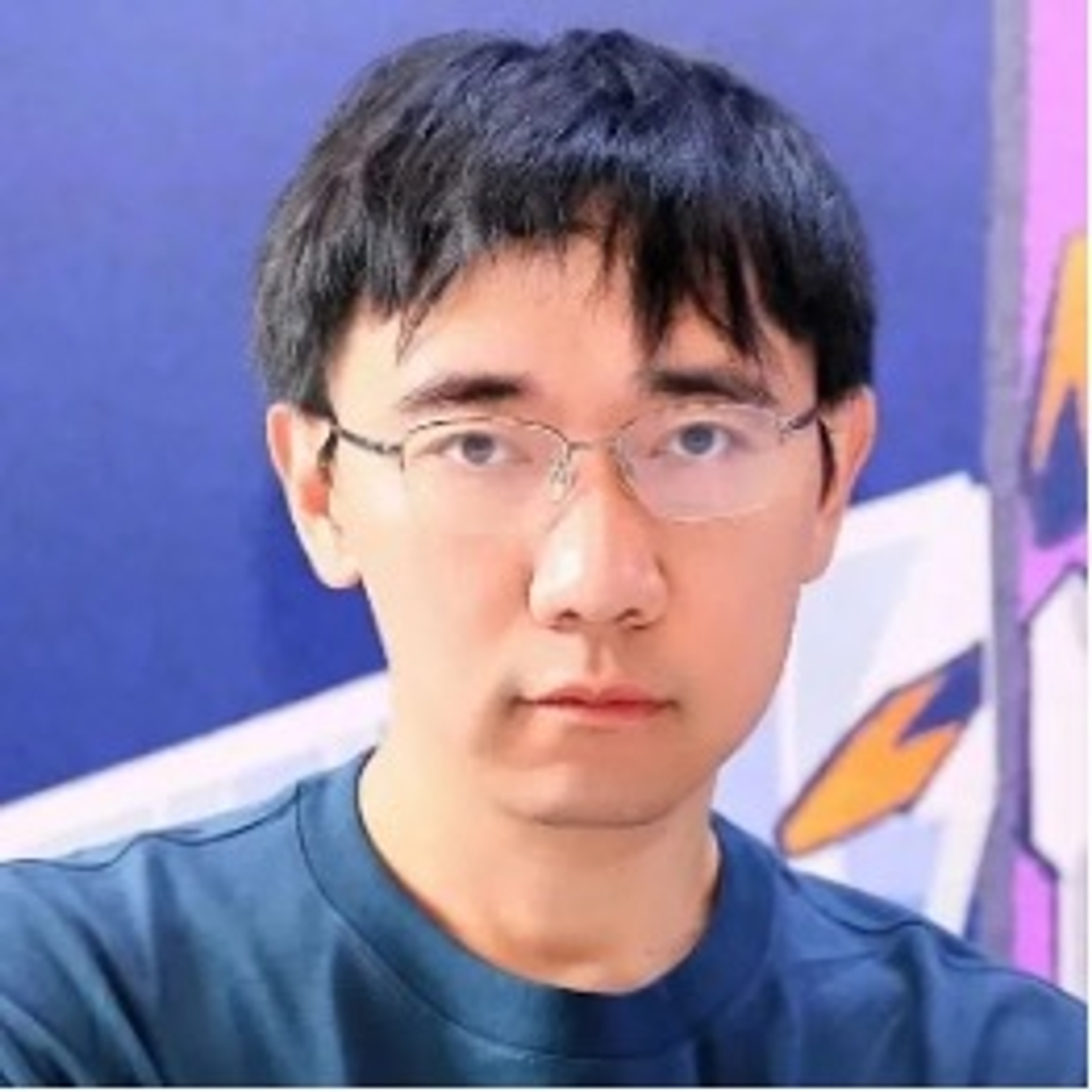
Baoshu
Science Fiction Writer
2022-2023 Berggruen Fellow
Primarily engaged in the field of science fiction, Baoshu has written nine novels, including The Redemption of Time, The Ruins of Time, and The Seven Kingdoms Galaxy Saga, among others. His works explore themes such as biological evolution and the origins of civilization, near-future private life and ethics, and philosophical investigation on time and space. Many of his works have been translated into English, French, German, Japanese, Spanish etc. He has received Chinese Nebula Award, the Galaxy Award for Chinese Science Fiction, and the Planet Award, among others, and have been shortlisted for the Japanese Seiun Award's international translation category and the Hugo Award for Best Short Story.
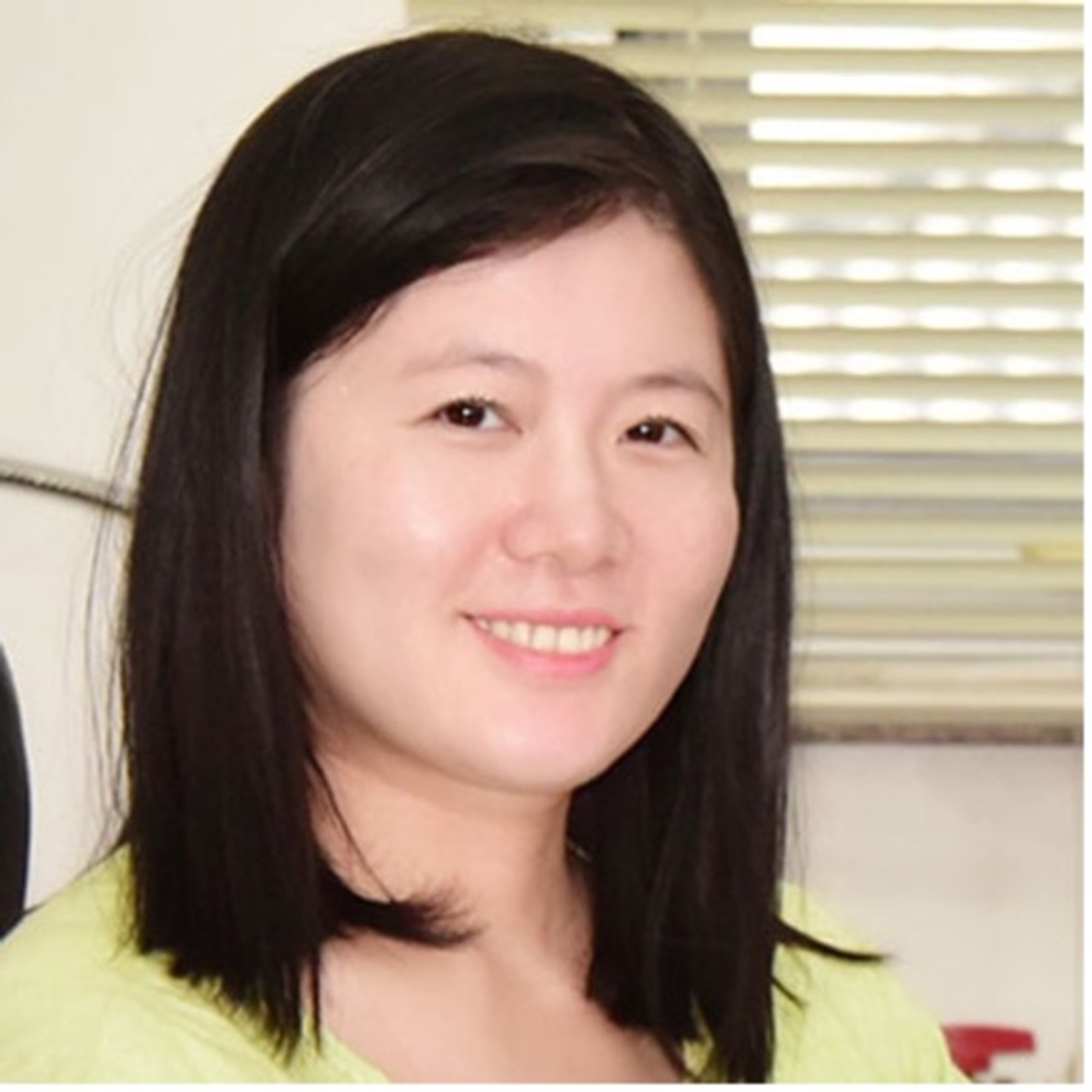
GE Jianqiao
Brain Scientist
2021-2022 Berggruen China Center Fellow
Ge is a lecturer at the Academic for Advanced Interdisciplinary Studies (AAIS), Peking University. Her research focuses on brain intelligence and social cognition. Ge received her Ph.D. in psychology, B.S in physics, a double B.S in mathematics and applied mathematics, and a double B.S in economics from Peking University. She was a postdoctoral fellow at the University of Chicago. Ge has published more than 20 peer-reviewed articles on leading academic journals such as PNAS, the Journal of Neuroscience, and has been awarded two national patents. In 2008, by scanning the human brain with functional MRI, Ge and her collaborator were among the first to confirm that the human brain engages distinct neurocognitive strategies to comprehend human intelligence and artificial intelligence.
About CITIC Bookstores
CITIC Bookstores operate under the CITIC Publishing Group. It adheres to the development concept of "enhancing the value of each reader's unit time" and integrates carefully selected books, cultural and creative products, reader community spaces,and fine dining to upgrade the traditional bookstore model into a composite cultural lifestyle destination.
